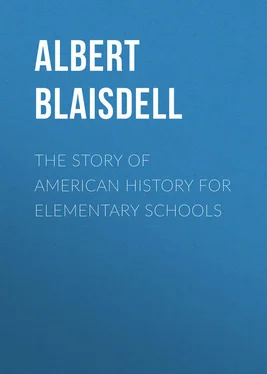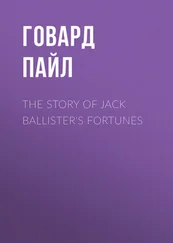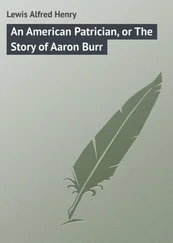Albert Blaisdell - The Story of American History for Elementary Schools
Здесь есть возможность читать онлайн «Albert Blaisdell - The Story of American History for Elementary Schools» — ознакомительный отрывок электронной книги совершенно бесплатно, а после прочтения отрывка купить полную версию. В некоторых случаях можно слушать аудио, скачать через торрент в формате fb2 и присутствует краткое содержание. ISBN: , Жанр: foreign_antique, foreign_prose, Историческая проза, на английском языке. Описание произведения, (предисловие) а так же отзывы посетителей доступны на портале библиотеки ЛибКат.
- Название:The Story of American History for Elementary Schools
- Автор:
- Жанр:
- Год:неизвестен
- ISBN:http://www.gutenberg.org/ebooks/34600
- Рейтинг книги:5 / 5. Голосов: 1
-
Избранное:Добавить в избранное
- Отзывы:
-
Ваша оценка:
- 100
- 1
- 2
- 3
- 4
- 5
The Story of American History for Elementary Schools: краткое содержание, описание и аннотация
Предлагаем к чтению аннотацию, описание, краткое содержание или предисловие (зависит от того, что написал сам автор книги «The Story of American History for Elementary Schools»). Если вы не нашли необходимую информацию о книге — напишите в комментариях, мы постараемся отыскать её.
The Story of American History for Elementary Schools — читать онлайн ознакомительный отрывок
Ниже представлен текст книги, разбитый по страницам. Система сохранения места последней прочитанной страницы, позволяет с удобством читать онлайн бесплатно книгу «The Story of American History for Elementary Schools», без необходимости каждый раз заново искать на чём Вы остановились. Поставьте закладку, и сможете в любой момент перейти на страницу, на которой закончили чтение.
Интервал:
Закладка:
The women were neatly dressed, usually wearing several short petticoats of many colors. Their stockings were of their own knitting, and had as many hues as the rainbow. Their shoes had very high heels.
90. Peter Stuyvesant, the Last Dutch Governor; New York surrenders to the English.– The last Dutch governor was Peter Stuyvesant, brave and honest, but a very stubborn man. He was so obstinate that he was nicknamed "Headstrong Peter." He was also known as "Old Silverleg," because, having lost a leg in war, he used a wooden one adorned with strips of silver. He was a tyrant in his way, and at length his people would not endure his tyranny, especially as the English settlers in the same region enjoyed more liberty and had increased more rapidly in numbers and riches than they.
And so it happened that when an English fleet sailed into the harbor in 1664, the people did not come to the help of "Headstrong Peter," but gladly surrendered the town to the English in spite of "Old Silverleg's" wrath! The name of the colony was changed to New York in honor of the Duke of York, the brother of King Charles II.
91. How the Quakers were persecuted.– About forty years after the Pilgrims had built their homes in Plymouth, the members of a peculiar religious sect, the Society of Friends, were bitterly persecuted in England. In spite of their ill-treatment, which lasted for many years, they greatly increased in numbers. A few men and women of wealth and of high social position joined them.
These Friends, or Quakers as they were commonly called, were singularly blunt in speech and plain in dress. But they were an honest, sober, God-fearing people. They wished to treat all men as friends, brothers, and equals. They did not approve of war and would not serve as soldiers. As they believed all men equal, they recognized no superiors: they would not doff their hats to any one, not even to the king, for they thought "the Lord forbade it." They said they would acknowledge no master, king, or lord, save only Him who was their "Master in heaven," the "King of Kings and Lord of Lords."
Naturally enough, in those days of bigotry and intolerance the doctrines and behavior of the Quakers made the king and his great men very angry. They threw hundreds of them into prison. Consequently, many of the Quakers left their homes, came to this country, and settled in Massachusetts. But the stern sons of the Old Pilgrim Fathers would not endure them. They drove them away or put them in prison. The Boston Puritans even hanged four Quakers who had repeatedly come back after having been several times punished and driven into exile.
92. William Penn becomes a Quaker.– About the time King Charles II was restored to the throne of England (1660) there lived in that country a handsome young man of noble birth and talents of the highest order. William Penn was his name. There is a portrait of him in the dress of an English cavalier, with flowing curls over his shoulders, and a face of manly tenderness and beauty. This man, the founder of Pennsylvania, was the only son of a brave English admiral who had won signal victories for his country during the Dutch war, and was held in high favor by the king and the royal family. While Penn was a boy and in college, his heart was stirred within him by listening to the Quaker preachers. He believed they were right. He was convinced that he ought to join them, and did so in spite of the ridicule of his rich and titled friends.
93. Young Penn falls into Disgrace with his Family and is sent from Home.– Young Penn was expelled from college and sent home. The old admiral, in his anger because his only son would disgrace his family by uniting with the despised Quakers, drove him from his door. The mother, however, interceded, and the stubborn youth was allowed to travel for a time on the Continent to divert his mind from what they called his foolishness.
Alas for the old admiral's ambitious plans for his gifted son! William was out-and-out a Quaker; and no title, honors, or favor could induce him to give up his faith. He pleaded with the king to allow the English people freedom of conscience, so that they might worship God as they deemed best. He tried in vain to procure the release of the Quakers from the prisons where hundreds of them were then confined. For a time Penn was himself shut up in the Tower of London, the prison of offenders of high rank. While there he wrote his best known work, No Cross, no Crown . The king's brother, the Duke of York, however, soon brought about his release.
94. Penn inherits Wealth; secures a Grant of Land from the King.– Penn's father was after all a generous man and regretted his treatment of his son. On his death, in 1670, he left him all his estate. Penn made a good use of his wealth. He devoted his time, money, and talents to secure legal protection in England for the persecuted Quakers. The task was almost hopeless.
In his despair Penn longed to build a quiet home for his people in the wilderness of America. He had heard of the happiness and prosperity of the Pilgrim settlements, and he now planned to lead his brethren across the Atlantic. The gallant admiral at his death had a claim against the government of about eighty thousand dollars. Now King Charles was a spendthrift and always in debt. Penn told the king that he would accept lands in America instead of money in payment of this claim. The easy-going monarch was only too glad to take up with this offer, for he had plenty of land in America but very little silver and gold.
On condition that he should be paid two beaver-skins every year, the king granted Penn a large tract of land on the western bank of the Delaware river, and named it Pennsylvania, or "Penn's Woodland."
95. A Colony of Quakers established in Pennsylvania.– Penn now planned to send his Quaker colony to the new home in America. He came over in person in the fall of 1682, and landed at New Castle, Delaware. Penn sailed in an open boat up the broad and beautiful Delaware River until he came to the place on which his chief city or capital was soon to be laid out. The "Quaker King," for thus he was called, was received with great joy by the people. They knew that he would keep his promise to secure full freedom of conscience and speech for all. He called it a "free colony for all mankind."
No person was compelled, as were the Pilgrims of New England, to attend any church or practise any form of religious worship. Only murder and treason were punished with death. Before this Penn had written to the colonists, saying, "You shall be governed by laws of your own making; I shall not usurp the right of any, or oppress his person."
96. Penn selects a Location for his Capital; Philadelphia, "the City of Brotherly Love."– On a neck of land between the Schuylkill and the Delaware, Penn selected a site for his "faire and greene country towne" – a city of refuge and a home of free speech and conscience. And he generously bought the land from some Swedes, who had bought it from the Indians.
Penn now laid out his city and gave it the Bible name of Philadelphia, which means "brotherly love." As he stood with his friends on the high ground and beheld the country in its autumn foliage, the good man said: "I have seen the finest cities of Europe, but I never saw so beautiful a place for a city as this."
97. His Kind Treatment of the Indians.– Penn knew how cruelly some of the other colonies had treated the Indians. This should not be done in Pennsylvania. The Indians must be fairly dealt with. Their lands were not to be taken away by force, but must be openly bought and honestly paid for. If a settler wronged an Indian, he was to be punished. In short, in this Quaker colony they were all to live together as brothers.
Читать дальшеИнтервал:
Закладка:
Похожие книги на «The Story of American History for Elementary Schools»
Представляем Вашему вниманию похожие книги на «The Story of American History for Elementary Schools» списком для выбора. Мы отобрали схожую по названию и смыслу литературу в надежде предоставить читателям больше вариантов отыскать новые, интересные, ещё непрочитанные произведения.
Обсуждение, отзывы о книге «The Story of American History for Elementary Schools» и просто собственные мнения читателей. Оставьте ваши комментарии, напишите, что Вы думаете о произведении, его смысле или главных героях. Укажите что конкретно понравилось, а что нет, и почему Вы так считаете.












